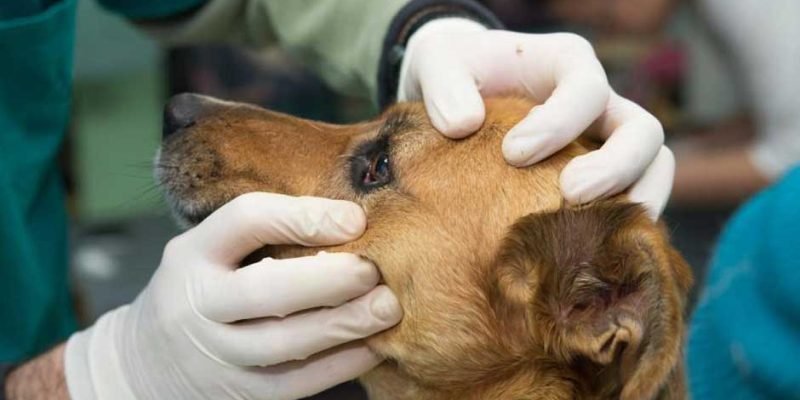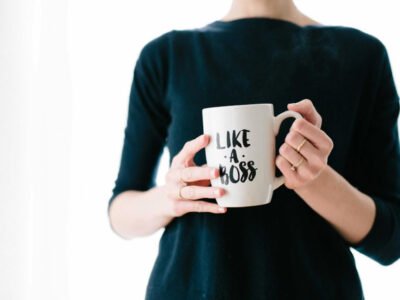Personal protective equipment (PPE) helps protect the wearer and those around them from contacting any hazardous substances or contaminated bodily fluids. This is essential in the healthcare industry, not just for humans but also for animals.
Veterinarians handle multiple animals every day. And these animals are in different conditions and situations. Some might be sick, while others just need annual boosters and regular deworming. Veterinarians are exposed to the bodily fluids and secretions of animals like saliva, blood, feces, etc. To protect themselves and prevent contamination, wearing disposable gloves is required.
But this is not the only reason why veterinarians should wear gloves, here are a few more!
Purpose of Veterinary Gloves
Keeping hands clean is crucial in the healthcare industry, including veterinary healthcare providers. And to achieve this, wearing veterinary gloves is essential. There are four main types of gloves used for veterinary medicine — latex, nitrile, vinyl, and safety gloves. Some even use paper gloves. Whichever type of gloves veterinarians wear, the size, material, and application are essential.
Top 4 Reasons Why Veterinarians Wear Gloves
Veterinary gloves are not only used for examination or consultation, they are also used for surgeries, diagnosis, and extraction of blood and other bodily fluids. Aside from protecting the wearer from being directly in contact with bodily fluids and animals, here are 4 more reasons why veterinarians should wear gloves.
High Dexterity
The right type and size of disposable gloves can help improve the veterinarian’s dexterity. Search for durable disposable gloves that don’t decrease hand movement and dexterity. For this, the right size of gloves is crucial. If gloves are too loose, they can get caught up in your tools or the animals you care for. And if the gloves are too tight, they can lead to hand fatigue and stress.
Prevent Injuries
Another reason why veterinarians should wear gloves is to prevent injuries. When an animal is in distress, they tend to be wary and avoid other people and move around intensely. This can lead to surprise scratches, slipping, and other accidents. Some animals are more active while others are more docile.
To prevent injuries during consultations and examinations, wearing the right veterinary gloves is essential. Wear the right length, material, and size of gloves. If you’re handling bigger and more active animals, choose a pair of gloves that covers your arms. While regular disposable gloves can be used for more docile, smaller animals.
Hinders The Spread Of Diseases
Different types of gloves offer varying levels of protection. Some gloves offer superior protection against various chemicals and bodily fluids. While others protect against animal scratches and bites.
When handling bodily fluids or extracting blood, wearing durable veterinary gloves is crucial. Gloves provide a barrier between the skin and the blood which can be contaminated with different bacteria and viruses. By wearing gloves, enforcing good hand hygiene practices, and replacing gloves with every patient, veterinarians can prevent the spread of various diseases.
Peace Of Mind
When you see your veterinarian wearing and replacing gloves, you can rest assured your pets will not get any disease from the previous patient. This provides peace of mind for clients and an improved reputation for the veterinarian.
Best Hand Hygiene Practices for Veterinarians
In the healthcare industry, proper hand hygiene is emphasized and enforced. Without proper hand hygiene, wearing gloves will be a waste. This is where proper hand washing is necessary. Proper hand washing with soap and running water can greatly help prevent any spread of diseases and contamination.
Hands are always exposed and come in contact with many animals, objects, and tools. By combining proper hand washing and wearing gloves, veterinarians prevent the spread of diseases and health problems, which can be deadly to animals.
Here are a few handwashing practices veterinary clinics should implement:
Use plain soap and running water to wash your hands, before and after wearing gloves.
Antimicrobial soaps can be used to replace plain soaps. However, some antimicrobial soaps will lead to skin dryness.
Look for moisturizing soaps to prevent skin dryness and cracking.
Soap dispensers should be cleaned and sanitized to prevent bacteria growth and build-up.
Using alcohol-based rubs can help keep hands clean and sanitized.
It is highly recommended to wash the hands between clients and animals and when the veterinarian comes in contact with bodily fluids, blood, feces, exudates, and more. However, not only veterinarians should wash their hands and wear gloves but also all the personnel in the veterinary clinic that comes in contact with animals.
Conclusion
Proper hand washing and wearing gloves are strictly enforced in all medical facilities, including for both humans and animals. Many diseases, viruses, and health problems can be prevented just by wearing the right types of gloves. When your veterinarian is not wearing gloves, ask them to wear a pair before entrusting your precious pets to their care. You can never tell whether the previous client they examined is healthy or with some contagious disease.
It is always better to be safe than sorry, especially when it comes to health, both people and animals.














Comments